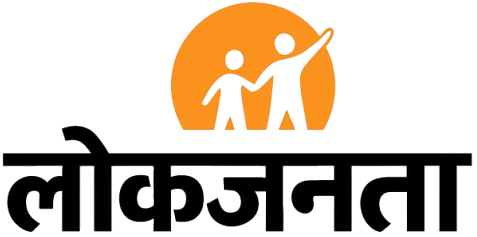For investors, such moves can serve as confidence markers, especially in periods of market uncertainty, suggesting that those closest to the business see value others might be missing.
The prolonged consolidation in small-cap stocks has tested investor patience, but it has also created fertile ground for selective accumulation.
Promoters of the five companies covered in this editorial have used this opportunity to increase their ownership during the September quarter.
This comes at a time when each firm is undertaking large-scale capacity expansions and diversifying its revenue streams.
Kiri Industries
Kiri Industries is a large manufacturer and exporter of dyes, dye intermediaries, and basic chemicals. It’s one of the largest Indian manufacturers and exporters of its product range.
Kiri is an accredited partner with top dye and textile majors across the Asia-Pacific and the US.
The company leverages backward integration by manufacturing about 60% of the intermediaries required for its colour manufacturing domestically. This helps manage raw material costs and quality.
The promoters have increased their stake by 500 basis points (bps), i.e. 5% sequentially, and by 1,300bps (13%) during the last one year.
Promoters held a 36.7% stake at the end of the September quarter.
Revenue rose 10% year-on-year to ₹200 crore in Q1FY26, while profit after tax (PAT) crashed 89% to ₹10 crore.
The company continues to face headwinds due to volatility in raw material prices. Due to challenges in the textile sector, lower capacity utilization (around 48% in Q1FY26), and recent US tariffs (50%) on dye imports, Kiri has tapered down its forecast. The company now estimates ₹1,200-1,300 crore revenue in FY26.
That said, the company is optimizing its product mix, rationalizing costs, enhancing internal efficiencies, focusing on strengthening value-added products, and improving productivity.
It’s also diversifying by expanding into the integrated copper smelting and the fertilizer sector. The project involves establishing an integrated facility in Amreli, Gujarat, near Pipavav Port.
The fully integrated facility includes a 500,000 metric tonne per annum (mtpa) copper smelter, a 350,000mt phosphoric acid plant and a 1,050,000mt nitrogen-phosphorus-potassium fertiliser plant.
The construction has commenced, with a 36-month completion timeline starting in October 2025. But Kiri expects partial revenue to start accruing from FY27. It expects close to ₹12,000 crore revenue in the first year on about 25% capacity utilization.
All capacity is expected to be installed by 2028. By FY29-30, the entire capacity is projected to generate revenue of more than ₹40,000 crore (assuming current copper prices). India is a net importer of refined copper, which means that Kiri production will serve as import substitution.
Refex Industries
Refex Industries operates five distinct business verticals with a diverse portfolio encompassing ash and coal handling, eco-friendly refrigerant gases, green mobility, wind energy, and power trading.
Refex is the largest organized player in ash and coal handling, with a market share of 0.5%. The company handles 70,000mt of ash daily and operates 2,000 owned or leased fleets.
It provides services to more than 40 power projects across 15 states in India. The largest client is NTPC, which accounts for 60% of this business segment. The company expects this business to grow at a compound annual growth rate (CAGR) of 19-20%.
Promoters have increased their stake by 260bps (2.6%) from June to October 2025.
Promoters held a 55.9% stake at the end of October.
Refex also employs a pure business-to-business model and operates 1,359+ owned/leased vehicles in Bengaluru, Chennai, Hyderabad, and Mumbai. The company aims to expand its fleet to 5,000 by FY27 end, with profitability expected to begin around the same period.
In wind energy, the company is focusing on manufacturing 5.3MW (and above) wind turbines, aiming for 5GW annual production capacity within five years. The company raised its first invoice in Q1FY26.
A leased facility in Gujarat was inaugurated, and the Silvassa facility should be ready by the end of Q2FY26 for assembly operations. It plans to achieve profitability in the wind business this year itself.
The company is reducing its focus on refrigerant gases due to the limited market size.
Revenue declined 35% on-year to ₹380 crore in Q1FY26, due to seasonal disruption in the ash and coal handling business. PAT declined 31% to ₹20 crore.
The company expects sales to improve from Q3FY26, driven by improved site access and strong demand from the cement and construction sectors post monsoon.
SMS Pharma
SMS Pharma is an active pharmaceutical ingredient (API) player that has evolved from a single-unit product facility (started in 1989) to a diversified player with a global presence.
It has a diversified product portfolio, with a high-value to high-volume revenue ratio of 63:37 in FY25. The company’s largest segment is anti-diabetic, with high-value products including sitagliptin, empagliflozin, dapagliflozin, and vildagliptin.
In anti-inflammatories, it’s among the top producers in India, with a high-volume product, Ibuprofen. Tenofovir is a high-volume product in the anti-retroviral segment. In the fast-growing anti-epileptic segment, key products include Levetiracetam, Perampanel, and Lamotrigine.
Promoters have increased their stake by 180bps (1.8%) sequentially, and by 340bps (3.4%) during the last one year.
Promoters held a 68.1% stake at the end of the September quarter.
Revenue grew 19.5% on-year to ₹190 crore in Q1FY26, driven by strong volume growth. Anti-diabetic contributed 27% to revenue, followed by ARV (20%), anti-inflammatory (19%), and others. PAT increased 12.5% to ₹18 crore.
Looking ahead, the company is scaling up ibuprofen production significantly and is targeting volumes of about 5,000 tonnes in FY26, compared to 2,200mt in FY25.
It aims for a production target of 1,000mt per month for ibuprofen on a global scale. The company is targeting 20% revenue growth and aiming for a 20% Ebitda margin for FY26. To achieve this, SMS Pharma invested about ₹150 crore in FY25 in backward integration for cost efficiency and margin sustainability.
This is primarily focused on high-volume anti-diabetic and anti-epileptic products, where the cost pressure is high. Commercial production of key intermediates started in Q1FY26, with margins expected to expand from Q2FY26 onwards.
In addition, it’s also expanding into existing and new high-potential molecules and the contract manufacturing organization business, with an investment of ₹250 crore over the next 18 months.
The company is targeting an asset turnover of 1 against 0.7 in FY25 for the incremental capex, with commercial operations expected to commence in early FY27.
Associate Alcohol and Breweries
The company is an integrated alcoholic beverage company operating the largest manufacturing facility located at a single site. Situated in Madhya Pradesh, the facility has 41 bottling lines with a collective annual capacity of 16 million cases.
Promoter stake in the company has increased by about 190bps (1.9%) to 61.2% in Q2FY26.
Promoters held a 62.1% stake at the end of the September quarter.
In Q1FY26, the company’s net revenue increased 6% on-year to ₹260 crore. Meanwhile, profitability surged due to operational efficiency. Margins expanded 300bps to 14%, while PAT rose 33% to ₹24 crore.
Looking ahead, the company’s core focus is shifting towards value-added and proprietary brands, aiming for margin accretion. The management expects IMFL (proprietary) volume growth to be around 25-30% over the coming years.
In addition, the company is expanding its premium portfolio, following the successful launches of Nicobar Gin and Hillfort Blended Malt Whiskey. This is in line with the trend of premiumization, which is growing faster than the broader IMFL.
Associated Alcohols is also expanding beyond core markets like Madhya Pradesh and Kerala to become a pan-India player in the next 1-2 years. Recently, it entered Maharashtra and Uttar Pradesh, and future expansion is expected in Puducherry and Goa as well.
Jyoti Resins
Jyoti Resins is a manufacturer of synthetic resin adhesives. Jyoti Resins manufactures various types of wood adhesives (white glue) under the brand name EURO 7000. It’s the second-largest selling wood adhesive brand in India.
Its diversified product portfolio includes features like water and termite-proof, heat and fungus-resistant, and fast-drying. The company’s network spans 14 states, 65 distributors, serving 13,000 retailers and 350,000 carpenters.
The top five states (Gujarat, Rajasthan, Madhya Pradesh, Maharashtra, and Karnataka) contribute 75-80% of the overall sales volumes/revenue. The company’s current focus is entirely on the white gum category, with an estimated market size of ₹7,500 crore per annum in India.
Promoters have increased their stake by 310bps (3.1%) sequentially.
Promoters held a 53.9% stake at the end of the September quarter.
The financial performance was mixed. Revenue rose 8.7% on-year to ₹75 crore in Q1FY26, though volume growth fell 3% on-year as early monsoons weighed on the performance. Consequently, PAT declined 10.5% on year to ₹17 crore.
Looking ahead, the company is focused on strong fundamentals and steady, profitable growth. It plans to reach revenue of ₹500 crore in the next three years, up from ₹280 crore, with 15-20% annual growth.
To achieve this growth, Jyoti is increasing monthly capacity by 1,500 tonnes over the next 6 to 12 months, bringing the total capacity to 3,500 tonnes. The management estimates incremental revenue of ₹650 crore from the expanded capacity.
In addition, it also plans to set up a greenfield capacity, with an investment of ₹45 crore.
Beyond expansion, Jyoti Resins aims to expand market share by increasing penetration in existing states and foraying into new states.
Should you consider small-caps with rising promoter holding?
Across these five names, a common thread is visible. Each company is entering an investment phase aimed at scaling capacity, diversifying revenue streams, and improving operating leverage.
While near-term earnings may stay volatile due to execution and demand risks, these expansions reflect the management’s intent to capture a higher market share and enhance long-term profitability.
Sustained promoter buying further reinforces confidence in the visibility of growth.
However, instead of relying only on hype, it’s necessary to carefully analyse the company’s fundamentals, including financial performance, corporate governance practices, and growth prospects, before considering any investment.
Happy investing.
Disclaimer: This article is for information purposes only. It is not a stock recommendation and should not be treated as such.
This article is syndicated from Equitymaster.com.




